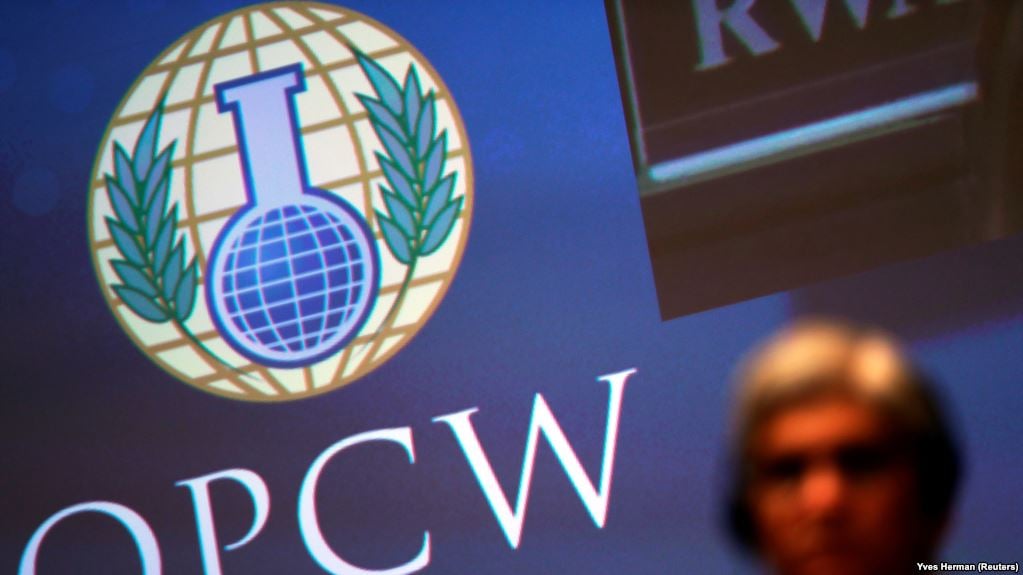
By Polygraph
Commenting on the chemical attack that allegedly took place on Syrian territory, Lavrov noted that ‘such situations have happened in the past — 2016, Khan-Sheikhoun, 2017, East Ghouta.’ As the minister recalled, in the first case Russia insisted on an OPCW inspection, but ‘Western colleagues blocked the inspectors’ way’.”
FALSE
It is Russia and the Syrian regime who block OPCW inspectors from investigating chemical attacks in Syria, not the West.
On August 29, TV Zvezda, the Russian Defense Ministry’s news channel, published a story on its website which quoted Russian Foreign Minister Sergei Lavrov commenting on the situation in Syria. In it, Lavrov referred to several past cases of chemical weapons use in Syria, including in Eastern Ghouta and Khan Sheikhoun. He claimed that Russia called for inspections by the Organization for the Prohibition of Chemical Weapons (OPCW), but that Russia’s “Western colleagues” moved to block these inspections.
This is false: Western countries like the United States did not try to block OPCW inspections in Syria. In fact, Russia and its Syrian government ally have impeded the OPCW’s work several times.
One of the first major chemical attacks in Syria occurred on August 21, 2013, in Eastern Ghouta, near Damascus. The Syrian government allowed OPCW inspectors to visit the site on August 25. Although British authorities warned that evidence could have been tampered with or destroyed during the time between when the attack was reported and the inspectors arrived, Western authorities did not try to impede the inspections. A subsequent U.N. report confirmed that the nerve agent sarin had been used in the attack.
After that incident, the U.S. agreed to a proposal by Russia to cooperate in destroying Syria’s chemical weapons stockpiles under the supervision of the OPCW.
Since then, however, additional chemical attacks have taken place, some involving sarin and others using chlorine. This past April, an apartment block in Douma was hit with a chlorine canister dropped from a regime helicopter.
Polygraph.info has done several fact checks about Russia’s attempt to distort the incident, and documented how OPCW inspectors were initially barred from the site of the attack.
While claiming to support inspections and investigations concerning these chemical attacks, Russia has actively moved to prevent such inspections from happening. In April, Polygraph.info documented six occasions when Russia used its veto power on the U.N. Security Council to block resolutions relating to chemical weapons use in Syria. Most notably, Russia vetoed the renewal of the U.N.-OPCW Joint Investigative Mechanism (JIM) in 2017. In October 2017, the JIM released a report blaming the Syrian regime for using chemical weapons in Khan Sheikhoun.
Also, while Russian authorities routinely call for “objective investigations” into chemical attacks, Russian state media have reacted negatively when investigators have implicated the Syrian regime. For example, Polygraph.info reported in May on a case in which Russian state media claimed that the OPCW received its samples from “jihadists.” No evidence was presented to support this claim.
Russian officials have recently claimed that “staged” chemical attacks were being prepared by rebels in Idlib, where the Syrian regime is preparing to launch an offensive. No evidence has been presented for these claims. In fact, Polygraph.info caught Russian state media and official Russian Foreign Ministry social media accounts using misleading photos to support allegations that chemical attacks in Syria have been staged by the opposition.
By Polygraph






